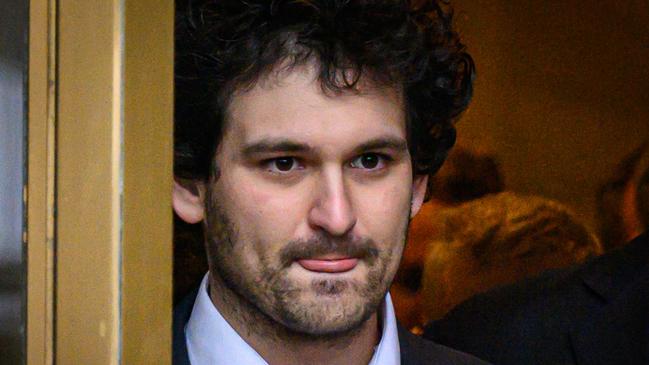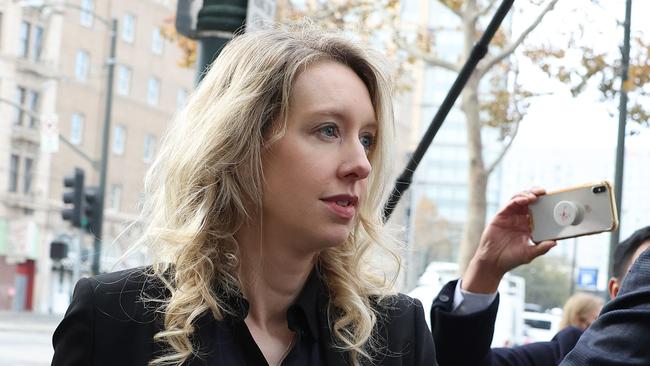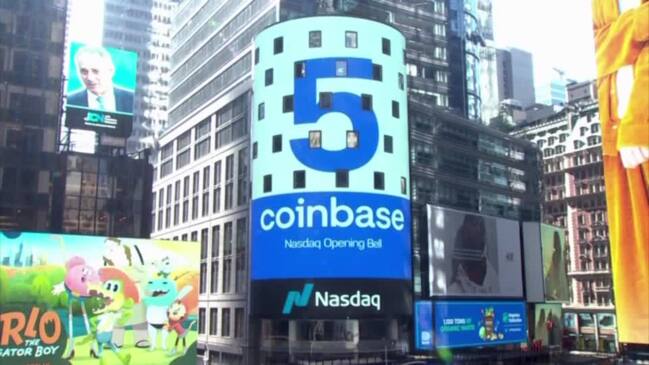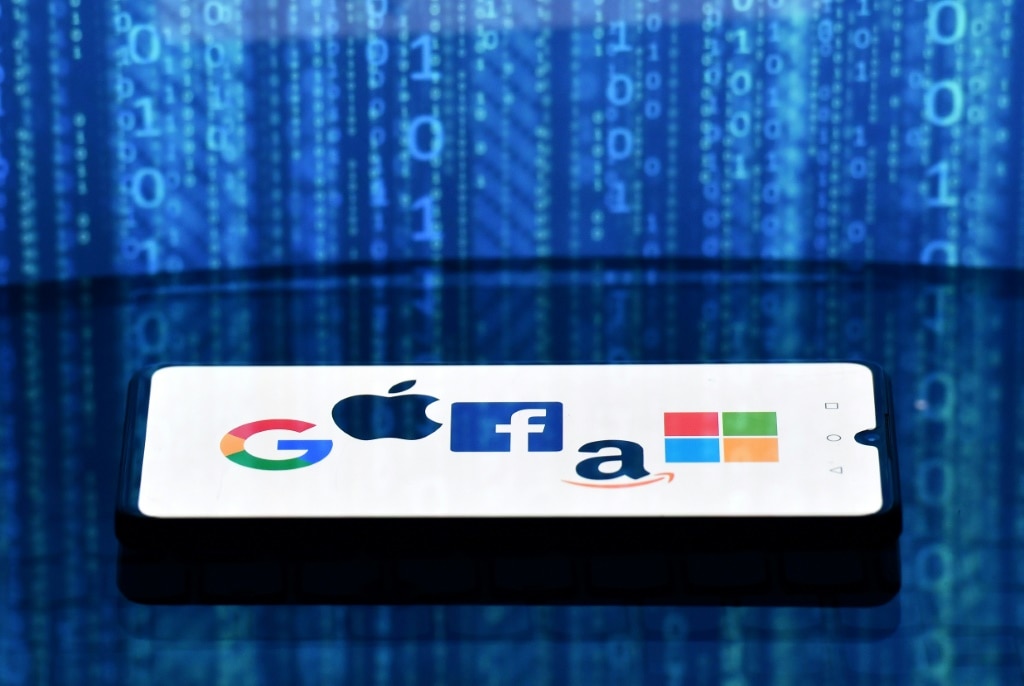Sam Bankman-Fried tale shows again how big tech is uniquely susceptible to lure of man-child
In the high-stakes world where Sam Bankman-Fried thrived there’s a gossamer-thin line between success and disaster.

Greed makes people into suckers. That’s the easiest lesson to draw from Sam Bankman-Fried, the cryptocurrency boss who goes on trial in the US on Tuesday.
Via the profile by Michael Lewis, serialised in The Times this week, he emerges as a mad disaster waiting to happen, a hobbit mistaken for Gandalf, all skater shorts and Oliver Letwin hair.
When he was worth billions, governments, celebrities and investors alike would fawn. Today, Bloomberg regards him as being worth literally zero. Like I said, it’s a simple lesson. Although I’m not sure it’s the right one.

Before we learn any lessons, though, let’s remember Elizabeth Holmes. Hers feels like a similar tale.
She founded Theranos, a medical firm that attracted vast investment with the claim that it could perform multiple complex tests with only a tiny amount of blood.
Long story short, it couldn’t. Having once been worth $US4.5 billion ($7bn), Holmes is now in jail and she only has a Disney+ mini-series (The Dropout, starring Amanda Seyfried) to show for it.
There was also Adam Neumann, whose own tech disaster series (WeCrashed) was on Apple TV+. He founded the office space company WeWork and is known, still, to unleash lawyers over any suggestion of grift.
Yet his former company, valued at $US47 billion when he cashed out, is now worth more than 100 times less.

All these stories feature companies that once seemed to resemble the golden gods of tech – your Amazons, Facebooks, Googles, eBays, PayPals and so on – and yet which turned out to be stuck together with spit and prayers. Another interpretation, though, is that the resemblance was not merely superficial. As in, maybe most tech firms are a bit like this. And maybe some just get away with it.
With Bankman-Fried, even if he is found guilty of a con, it will still be a con he carried out after creating a pair of multibillion-dollar businesses – the crypto exchange FTX and the trading platform Alameda Research – before smashing every plate he’d ended up juggling. Back to Holmes, her core mistake lay in her failure to actually invent anything at all. Which was not, I’ll grant you, a small slip.
It’s as if Apple, say, claimed to have invented the iPad but was really selling shiny sheets of plastic with a little apple on the back. Holmes, though, does seem to have believed that her teams would eventually get there. What if they had? History, which venerates winners, would have recast her con as pluck.
In The Contrarian, his biography of the PayPal co-founder Peter Thiel, the writer Max Chafkin reminds us of the Silicon Valley maxim that “it’s better to ask for forgiveness than permission”.
This Thiel did, flouting banking regulations and the rules of credit card companies with cheerful abandon. “When those companies complained,” Chafkin writes, “PayPal simply apologised.”

Within tech, that dynamic is ubiquitous. It just doesn’t always work. Consider the file-sharing service Napster, which upended the entire global music industry before the US courts crushed it for flouting copyright. Had it been just a little more deft, it could have sewn up digital music long before Spotify even picked up the ball.
Sean Parker, one of Napster’s founders, would go on to be an early partner of Mark Zuckerberg’s Facebook, as seen in The Social Network. Right from the start, that company would also push boundaries with data and privacy, again with a strategy of just apologising afterwards.
“Move fast and break things,” Zuckerberg told his staff. Eventually, Facebook would break things that can never be fixed, polarising western politics and plunging some countries, such as Myanmar, into actual genocide. By then, though, Facebook was too big to be reined in. The strategy had worked.
Then there’s Google. Two decades ago that company’s thirst for data led to it digitising almost every book ever written online without permission, with a view to worrying about copyright afterwards.

Ten years later, a US court decided this was fair use; the strategy had worked again. They allowed something similar to happen with video content on YouTube, presenting the people who actually owned it with a fait accompli by the time they started negotiating for royalties. See also the way that Uber has bulldozed employment and taxi laws, or what Airbnb has done with rental and hospitality. All have walked a legal tightrope. Tech history would be very different if they had fallen off.
The failures fascinate me. Perhaps you remember Ross Ulbricht, the founder of the dark web narcotics marketplace Silk Road. By the time he was arrested by the FBI in 2013, his website had sales in the hundreds of millions.
This story is a nasty, messy one, which is perhaps why that movie (Silk Road, 2021) was a bit of a flop. It’s also quite hard to see how Ulbricht himself could ever have imagined turning a corner into respectability.
Yet today, while he serves life without parole in a Tucson jail, bear in mind that cannabis is effectively legal in 40 US states out of 50.
Or there’s the fascinating, near-forgotten tale of Dell Glover, a worker at a CD-printing plant tracked down by Stephen Witt in his fascinating book How Music Got Free.
Glover is nobody now, a footnote in digital history. In 2001, though, he went from selling pirated versions of stolen CDs to setting up an illegal subscription video service. As in, he did it years before Netflix created Netflix. He went to jail, too.
Probably, this dynamic isn’t unique to the tech industry. Possibly, though, there is something unique to tech that makes it so susceptible to the lure of the alien man-child, in the form of Elon Musk or Zuckerberg or Bankman-Fried himself, because when the money is so unbelievable, there’s a comfort in assuming the people must be, too.
Either way, whatever happens to Bankman-Fried, his story is nothing new. We’ve seen it before, over and over again. And maybe the only real variation is in how it ends.
The Times






To join the conversation, please log in. Don't have an account? Register
Join the conversation, you are commenting as Logout